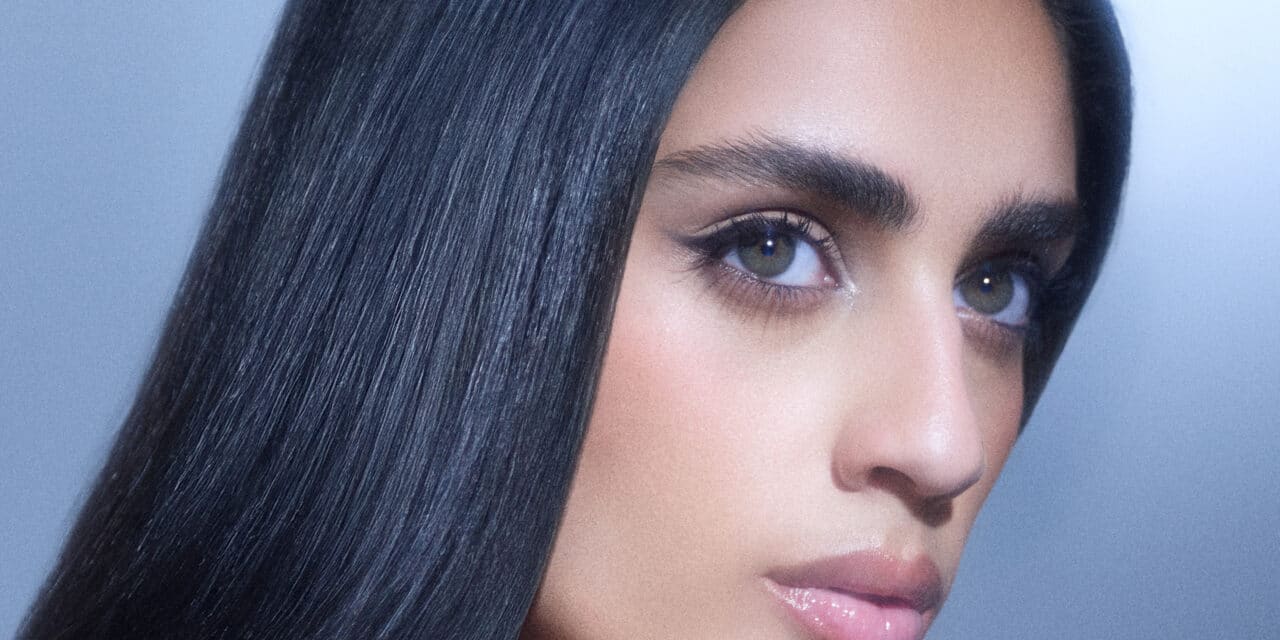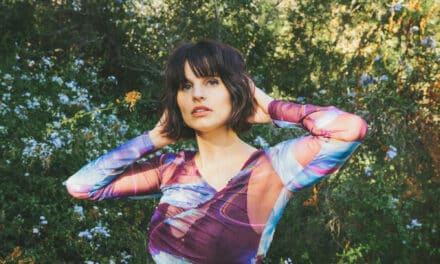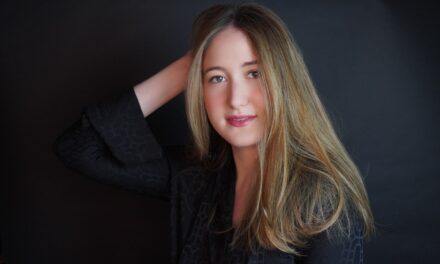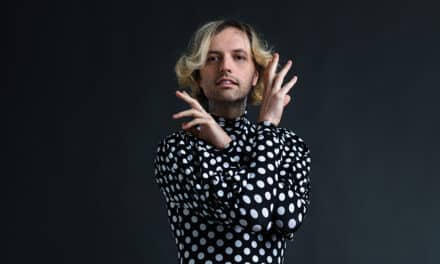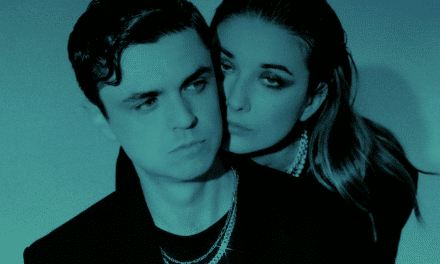2025 has been nothing short of monumental for Jordanian-Palestinian artist and songwriter Zeyne. Fresh off opening for Ed Sheeran on his +–=÷× Tour, gracing the first ever cover of Rolling Stone MENA, and being spotlighted on DAZED 100 Global Features to Watch, Zeyne stands as one of the most compelling new voices redefining what pop from the Middle East can sound — and feel — like.
Set for release on October 16, her debut album AWDA — which translates to “return” in Arabic — is a deeply personal and political statement disguised as a love letter. Across 13 tracks, Zeyne maps the emotional geography of what it means to come home to oneself. She weaves her Levantine roots through futuristic production, fusing traditional rhythms with genre-bending electronics and crystalline vocal layers that float between languages, generations, and worlds.
“It’s not just about going back,” she explains in our forthcoming conversation. “It’s about belonging — to your voice, your body, your community. To everything that makes you who you are.”
Zeyne’s work lives at the intersection of memory and movement — of tenderness and rebellion. As an ambassador for Spotify’s Equal Arabia, her impact goes far beyond her music. She’s a cultural force using her art to challenge narratives, amplify women’s voices, and bring visibility to Arab identity in global pop culture.
Her breakout COLORS performance of “Ma Bansak” marked a turning point — not only was she the first female artist from the Levant to appear on the platform, but she turned a minimalist stage into a world of ancestral warmth and modern defiance. The song’s haunting refrain, “I can’t forget you,” echoes far beyond romance — it’s a reminder of heritage, loss, and reclamation.
With AWDA, Zeyne invites listeners into an immersive world where love, displacement, and resilience coexist. It’s both a debut and a homecoming — a sonic act of resistance wrapped in vulnerability.
And if 2025 is any indication, Zeyne’s return is just the beginning.
“AWDA” translates to “return” — but return to what, exactly? When you listen back to this record, do you feel like you’ve finally arrived somewhere, or like you’re still on the road?
For me, I find Awda to be a return to self. Not completely or concretely, but in a way that feels like acknowledging all the different parts of myself, from the personal to the cultural, and the emotional. It’s about going back to the roots of what shaped me, the things I ran from or didn’t fully understand before, and giving them a place in the present.
When I listen back to the album, it doesn’t feel like I’ve arrived anywhere specifically. It feels more like I’ve finally stopped to look around me and notice that I’m still on the way there, still learning and unlearning, still making sense of what’s around me. But I think this is the first time I’ve been able to bring all the confusion, clarity, heritage, and heartbreak into one place. So in that way, Awda is both a return and a beginning.
There’s a line between heritage and reinvention running through your work — how do you decide what traditions to honour and which to disrupt when building your sound?
It’s definitely less about deciding and more about feeling. The heritage part of sound isn’t something I consciously add, it’s already in me. The rhythms, the phrasing, the melodies all come from what I grew up around, and those elements naturally find their way into the music without me needing to force them.
The sense of reinvention comes in where I start to question how these sounds can mould themselves in today’s soundscape. I never want tradition to feel frozen in time, I think it has to evolve with the people who carry it. Sometimes that means keeping something untouched, and other times it means bending it until it feels like today. I like that tension between honouring what came before and reimagining how it can live now. At the end of the day, I believe the most respectful thing you can do with heritage is to keep it alive, and not only by preserving it, but by letting it change with you.
You’ve been the first in so many spaces — first woman from the Levant on COLORS, first cover star of Rolling Stone MENA. Do “firsts” still feel empowering, or do they come with a different kind of pressure?
Honestly, every ‘first’ is empowering, and I think it always will be to me. Growing up, I would’ve never imagined being part of this industry at the scale that I’m at now, let alone being one of many firsts. Each one constantly reminds me of how far things have come and how much more is possible. Also, I’ve come to realise that, while “firsts” are important milestones in an artist’s journey, they don’t always mean the best. For me, it’s about constantly growing, striving for the best version of myself and my music, and continuing to present work that feels intentional and evolving with each step forward.
Of course, there’s pressure that comes with that because there’s a standard to uphold and expectations that can feel intimidating at times. But that’s also what fuels me. It keeps me pushing for what’s next, especially knowing that I’ve reached milestones I once thought were out of reach. Because of that, I believe that every goal I set for myself really is completely achievable.
I also think that every “first” sets the stage for what’s to come, not only for myself but for the next generation. I think of the young girls who think that their dreams are too big or too far away, and I hope that moments like these represent that nothing is out of your reach.
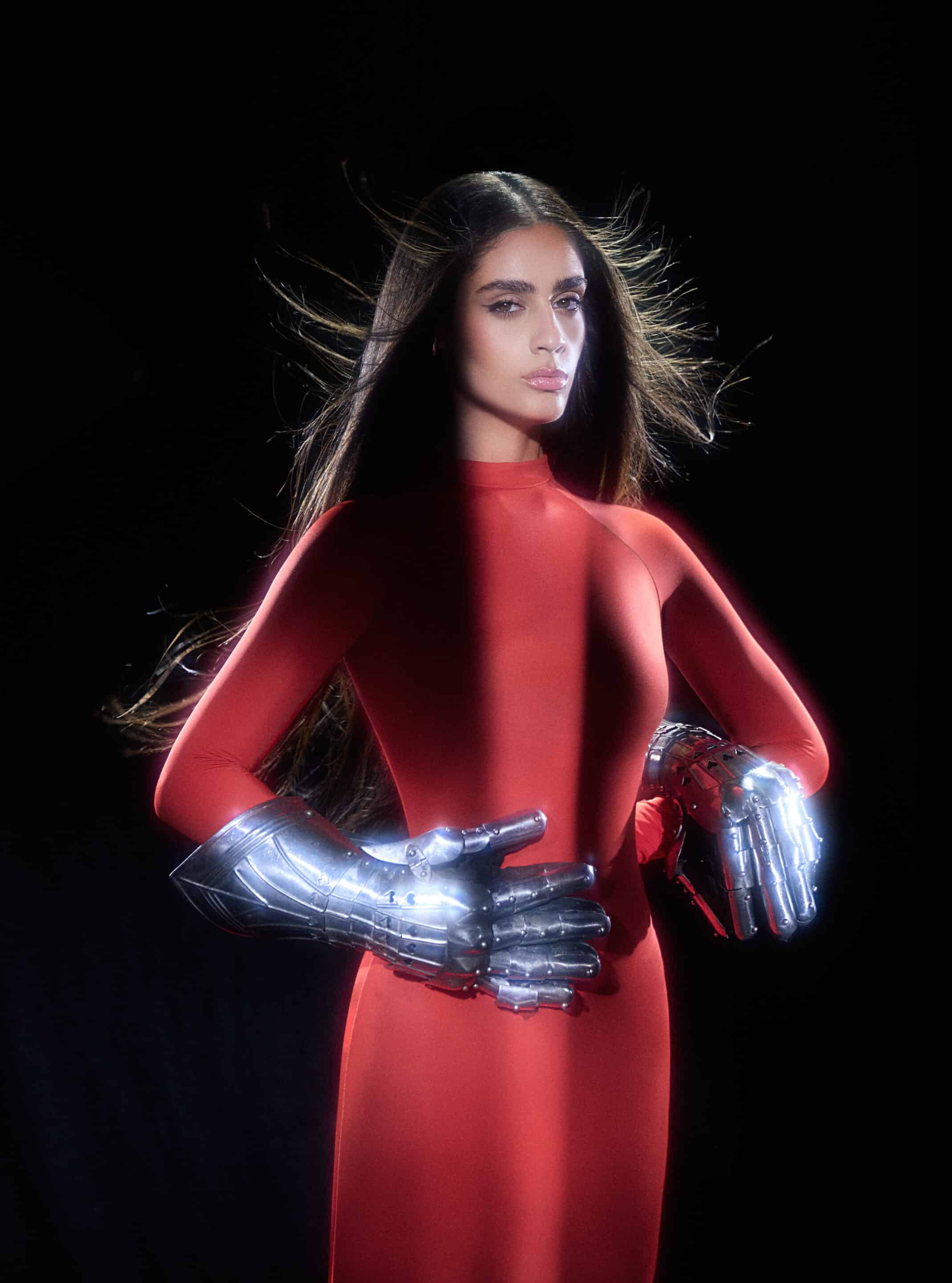
Opening for Ed Sheeran must’ve been surreal. Did performing to those massive, global crowds change your relationship with intimacy — both as an artist and as a storyteller?
It was surreal for sure. Standing in front of that many people and realising they’re all listening is something I don’t think I’ll ever get used to. What surprised me most was how much intimacy there was in that setting, cause you’d imagine a stadium show to feel distant, but when a lyric or a melody connects, it reaches people in a very visceral way.
Generally, there’s so much intimacy in sharing your story, whether it’s to one person directly or thousands in a crowd. When you share something honest, like an emotion or an experience, everyone receives it so differently. They attach it to their own memories, their own lives, and that connection is where the real intimacy lies. Performing on that scale really makes you realise that sincerity travels no matter the size of the crowd. If you’re sharing something so genuine, people will feel that.
In a world that constantly asks artists from the Middle East to “represent,” how do you hold onto the parts of yourself that exist outside of politics and expectation?
I think about this often, and it’s not always easy, because when you are from the Middle East, people view your art through a politicised lens before they even listen to it. As if you’re speaking on behalf of an entire region, but I’ve learned to hold onto the parts of myself outside of that by staying grounded in my honesty through and through. By doing that, I don’t separate who I am into political and non-political parts. Everything I create comes from the life I’ve lived, the emotions, the stories, the love, the contradictions. That in itself is representation.
For me, it’s about creating from an honest and human place before anything else. Yes, I’m Arab, I’m Palestinian and Jordanian, and that will always shape my voice. But I also feel, question, love, and grow beyond labels. The goal isn’t to escape identity, it’s to express it fully without having to explain or justify it.
The album feels like it’s stitched from both modern pop textures and ancestral echoes. Were there any sonic choices that felt like direct conversations with your roots?
Definitely. There are so many details throughout the album that are rooted in the sounds I grew up with. You can hear elements of that in the dabkeh rhythms of Asli Ana and Kollo Lena, the mijwiz in 7ilim aw 7a2ee2a, and the percussive patterns that immediately take me back to Palestine and to the kind of gatherings with family and friends that I saw growing up. Even when the production leans more modern, those sounds are what anchor it to make it feel real and lived-in.
In a way, most of the album is a conversation with my roots because it’s made up of fragments of what I’ve heard, seen, and carried from home. All of that shaped how Awda sounds.
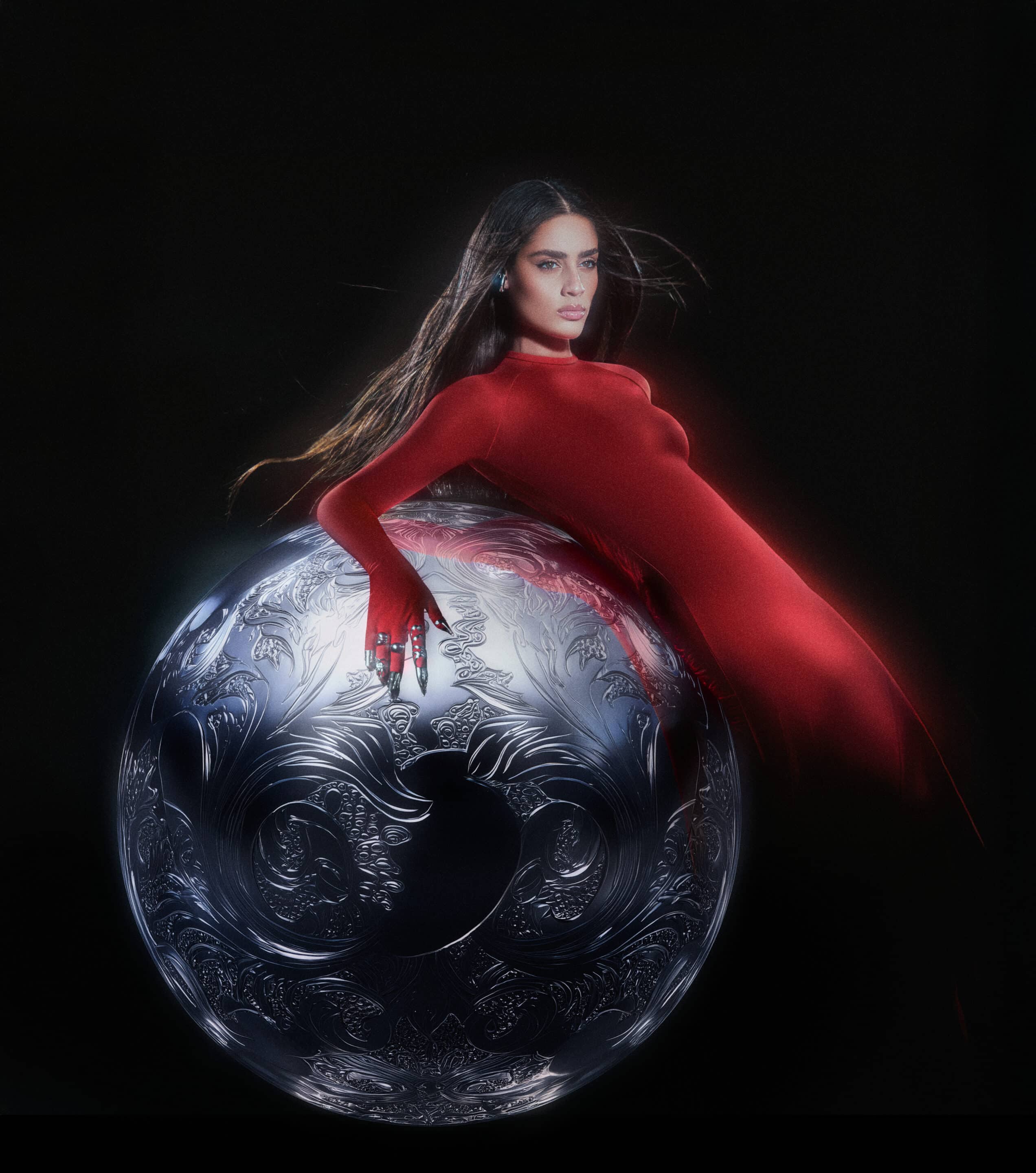
“Ma Bansak” on COLORS was such a luminous moment — visually restrained, emotionally volcanic. What did it mean for you to stand in that minimalist space and let your voice do all the translation?
Performing Ma Bansak on COLORS was one of those moments that felt bigger than me. The setup was so stripped down with no distractions, literally nothing to hide behind. It was just me, my voice, emotion, and the song itself. That simplicity made me fully present, to rely only on what I was feeling and how it came through vocally.
It meant a lot because Ma Bansak is such a personal song. It carries heartbreak, longing, and a kind of strength that I think every Arab woman recognises in her own way. Standing there and performing it with nothing around me felt really symbolic, especially because I sang in Arabic on the COLORS platform. To share that language and emotion with people who might’ve been hearing it for the first time was such an amazing feeling. Even for those who didn’t understand the Arabic itself, it showed how language can still be translated through music because they could feel the song, even without knowing the lyrics.
You speak often about belonging — but what does “home” sound like to you? Is it a melody, a language, a city, or a person?
Home is like a mix of things. Home sounds like my mom’s voice. It’s in the way she speaks, sings, or even calls my name. It’s the sound of Arabic, in its ability to express any emotion so beautifully, in its poetry, in how emotion sits differently in every word. That language alone carries so much meaning to me.
It also sounds like Palestine and Jordan. Even when I’m far away, they stay with me. They remind me of where I come from and the kind of love that built me. But also, home is such a complex place, built from so many moments, people, feelings, voices and memories, that I don’t think can ever be answered simply.
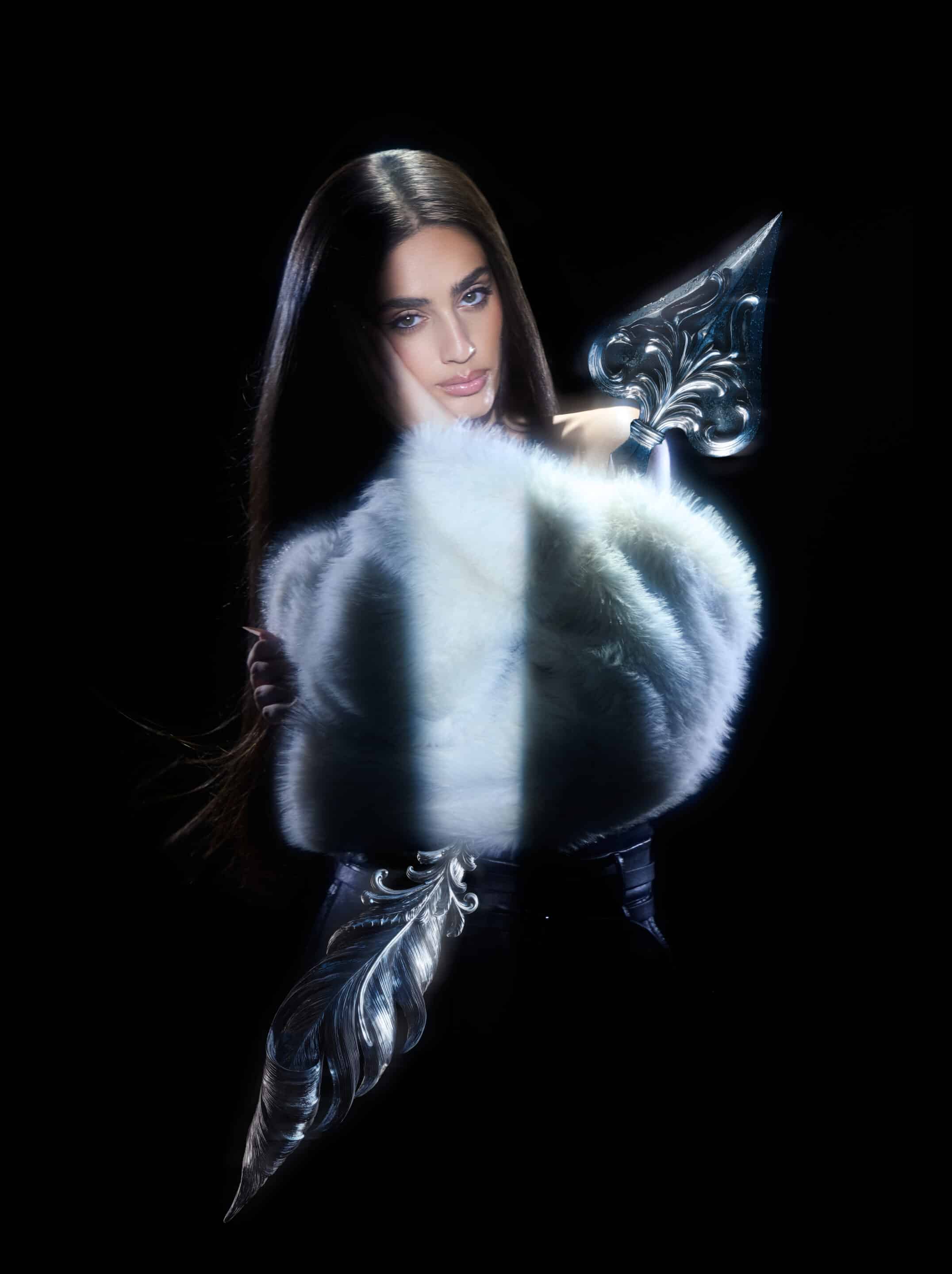
As Equal Arabia’s ambassador, your music naturally intersects with activism. How do you preserve softness and vulnerability when the world often demands resilience from women like you?
I don’t think softness and resilience are mutually exclusive, they coexist. People look at women, especially Arab women, and expect strength to mean hardness and guardedness, but I don’t see it that way at all. I think softness is just another side of resilience that we don’t address enough.
I don’t believe that I need to constantly perform strength and resilience to prove it. My resilience is something I carry with me in how I move, how I create, how I perform, and how I show up. But so is my softness and vulnerability. They both exist in me at the same time, and that’s what truly represents the line of women I come from that endure yet nurture, that fight but also love very, very deeply.
From another lens, that exact softness and vulnerability is, in itself, a form of resistance to the idea that we always have to be resilient. I want people to see that you can be all of it at once, resilient, soft, grounded, vulnerable, and loud, without having to choose one over the other.
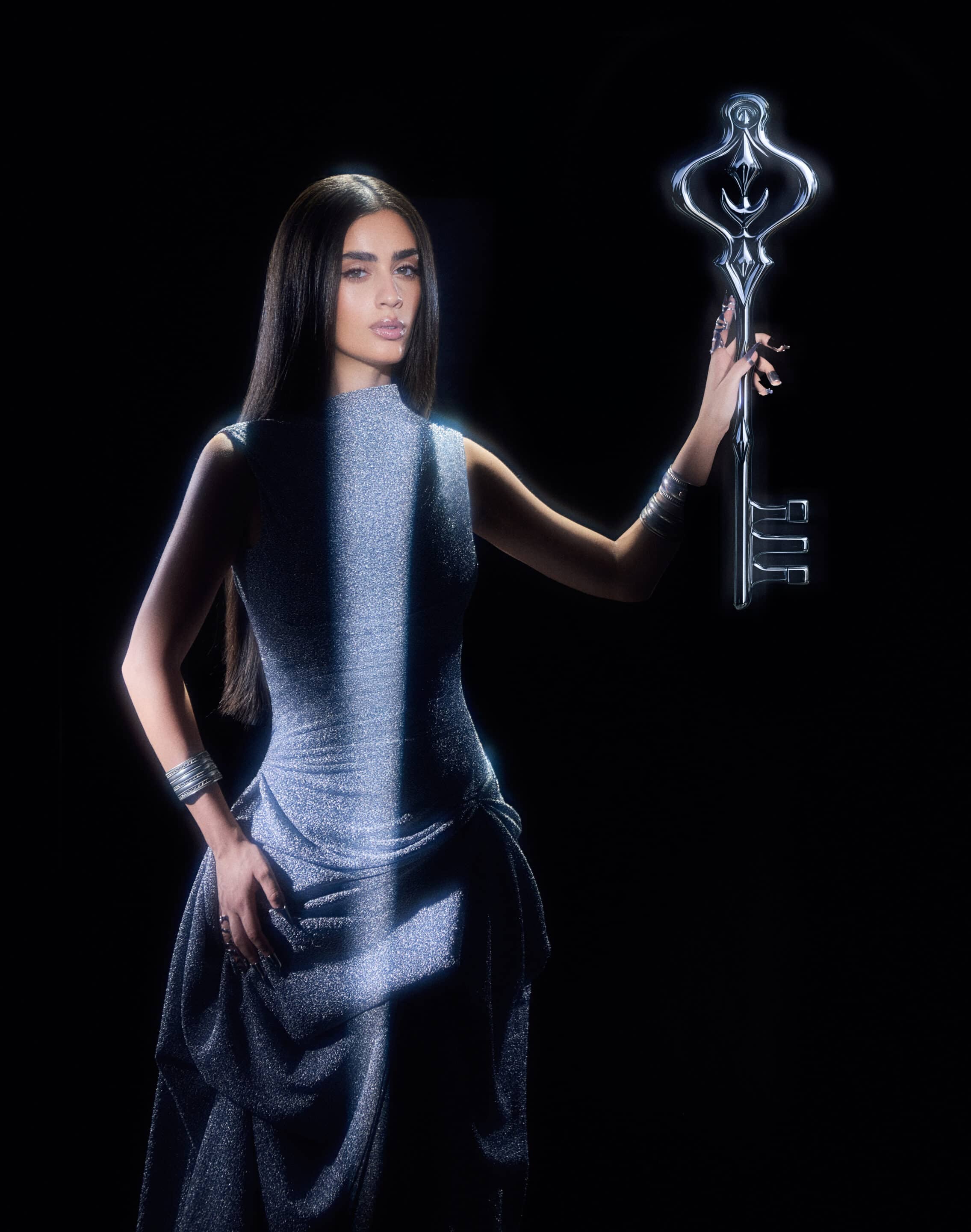
If you could leave listeners with one lingering feeling after AWDA — something they can’t quite name but can’t shake either — what would you want that to be?
I’d want it to leave people with a feeling they recognise, even if they can’t explain it. Something that feels familiar, that sparks reflection, like remembering a moment or an emotion they didn’t realise they missed. Awda holds so many layers of love, loss, nostalgia, and identity, but what connects them all is that sense of return to something real.
If the album can make someone stop for a second and feel something honest, something that stays with them after it ends, then that’s enough for me.

